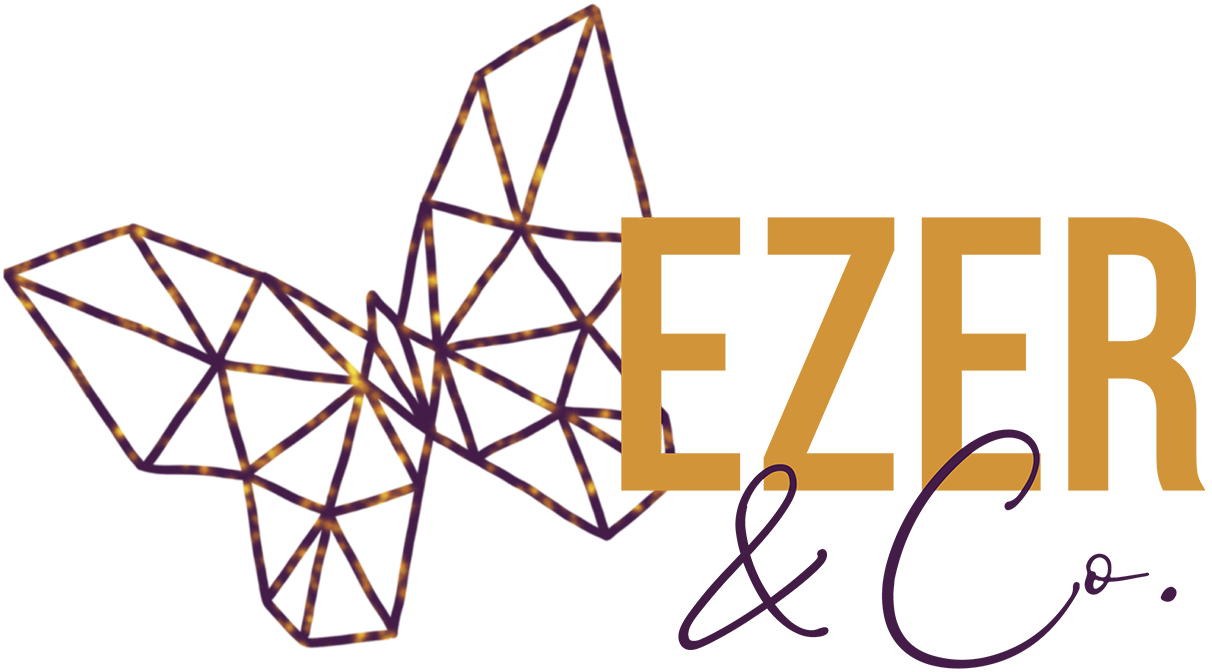Emily Acton
A Guest Post
First, A Word from April:
One of the distinctives of Ezer & Co. is that we’re committed to full partnership between men and women. As we pursue mutuality in relationships between men and women it means we’re going to miss things and mess things up at times.
On November 14th, we emailed and posted an article by B.T. Gilligan called “I Won’t Hurt You” and it received some challenging responses. One of which was from Emily Acton who pushed us beyond what we posted. I asked both B.T. and Emily if they’d be willing to discuss her issues with B.T’.’s article in a Zoom call (during the busiest holiday season!). They both agreed. Then, I asked if they’d be willing to write a response to the original article. Again, they agreed and what was produced was incredibly fruitful. Both Emily and B.T. have agreed upon what’s shared below.
If B.T.’s article triggered you or left you wanting, I hope this is even more beneficial…
EMILY ACTON: a courageous advocate
In his article, “I Won’t Hurt You,” B.T. Gilligan describes a situation in which, while out running, he finds that he has unintentionally become a source of fear for a woman out taking a walk with her children. When he states that “we live in a world where a strange man talking to a woman is cause for a woman to be afraid,” I think back on the countless times I’ve experienced the very fear he’s describing. For many, the topic of sexual harassment and assault strikes a raw nerve because it’s deeply personal.
It is exciting to see men engaging in this conversation, because they play a crucial role alongside women in catalyzing continued culture change. However, I would like to challenge the primary conclusion Gilligan’s article arrives at. He states: “I think the key [to create an environment where everyone can feel safe as they enjoy the out-doors and get healthier] is to create environments where women and men can be to-gether, at the same level, without the fear of judgment or competition.” I cannot speak for all women; however, I can speak for myself. When I am in public and I begin to feel fear for a man I don’t know, it is not because I feel judged or as though I am competing against him. I am afraid because I fear for my basic physical safety. It doesn’t mat-ter how healthy, supportive, and egalitarian the men in my personal social circles are; so long as I continue to hear stories of women being attacked, I’m going to be afraid. It has absolutely nothing to do with my sense of self-worth or belonging.
My deep desire is to see my brothers and sisters working to do everything in their power to prevent individuals from sexually assaulting others. Though this article and response focus primarily on the dynamic between male aggressors and female victims, I do also want to take a moment to acknowledge that there are certainly instances where the roles are reversed. While part of this work does include creating spaces where men and women are collaborating as equals, it’s not so women can feel accepted, but rather so men can see women as fundamentally human and worthy of being treated as such. There’s no other type of violence where the solution is to make the victim feel somehow more worthy of being in the same spaces as the aggressor. The solution is always to address the system(s) that create the aggressors.
So, what does this look like? I’ll freely admit that I don’t have all the answers. Culture change requires both men and women working in partnership. Men, I would encourage you to begin by seeking first to listen to and understand women’s per-spectives and experiences before speaking into these complex issues with definitive solutions. Additionally, while modeling proper behavior and treatment of women is a necessary starting point, the process cannot end there. Thread by thread we can begin to unravel a culture of aggression by creating a culture of advocacy, instead. Within our own spheres of influence, we all have a responsibility to both proactively edu-cate against and confront threatening and inappropriate behavior towards women. Men, there will be times when women will not feel they can safely confront this be-havior, and the burden will fall on you to be an advocate. It will be wildly uncomforta-ble, but at the end of the day, what’s the worst that could happen if you say something?
And even more importantly: What’s the worst that could happen if you don’t say anything at all?
An Uncomfortable Response:
B.T. GILLIGAN: a humble learner
When I first heard that my article struck a nerve, I wasn’t surprised. What sur-prised me was how many nerves I struck. Person after person coming to me with sto-ries of heartache and pain from running, from situations that were eerily similar. One high school friend told me why they no longer run. Another pastor friend shared with me her painful experiences. This was not a small event, a statistic was shared with me that 84% of women have been harassed while running. Then came Emily’s response that my article didn’t go far enough.
As I read through her response, my initial thoughts were that she was right. She was calling me out for not going far enough, and she was 100% correct. In her response, she says, “we all have a responsibility to both proactively educate and confront threatening and inappropriate behavior towards women”; this is the next step. In other words, creating a space for equality that is judgment and competition free is great and needed, but it isn’t enough.
If we need a proof that my article didn’t go far enough, recently a United Methodist volunteer youth leader in Georgia, named Tommy Callaway, was running a race and came up behind a female reporter and touched her inappropriately, on live TV. He apologized and said it was a “misjudgment in character and decision-making”. While he may sincerely believe it was a misjudgment, it was also a removal of that woman’s ability to feel safe while doing her job. It was also normalizing sexual assault and pro-moting a perception that one gender is able to do whatever they want to another. It turned that reporter into an object for his enjoyment instead of a person.
As a white man, I benefit from all sorts of privilege and rarely, if ever, am I in places where my race and gender puts me at risk. When I go to work, I don’t have to worry about anyone touching me inappropriately. When I go out for a run, I don’t have to worry about people hurting me. When I am asked about danger, aggression, clothing, or anything else, I do not have to wonder if my gender is part of the discussion. What happens then is it becomes easy to assume this is the case for everyone and just to assume that the problem doesn’t exist, because it doesn’t exist for me. Yet, that is not the case. The problem becomes prevalent all around us and we have to see it, or we can’t change it.
Men, what more do we need to do than create spaces for equality that are judgment free and competition free? This is not enough.
Men, we need to speak up, when a woman is touched, talked about, or looked at inappropriately, we decry it as evil. When our family and friends are victimized in any context, we also must use our privilege and voice to speak up and let the appropriate audiences know that men and woman will not stand for the continued dehumanization of those around us.
Emily was right. I didn’t go far enough in my original article and honestly, this response isn’t far enough either. We haven’t gone far enough until we model appropriate behavior for our kids, our coworkers, and our family. It isn’t far enough until we speak up and put an end to the systems that allow this inequality to exist. I’m grateful for her courage – and the others who gave me feedback – to speak up and move the conversation forward.



